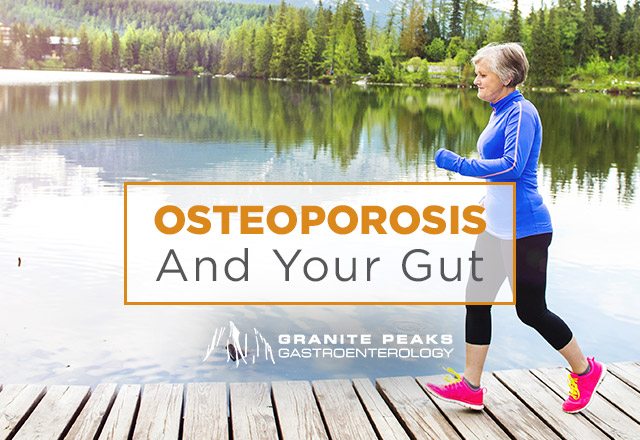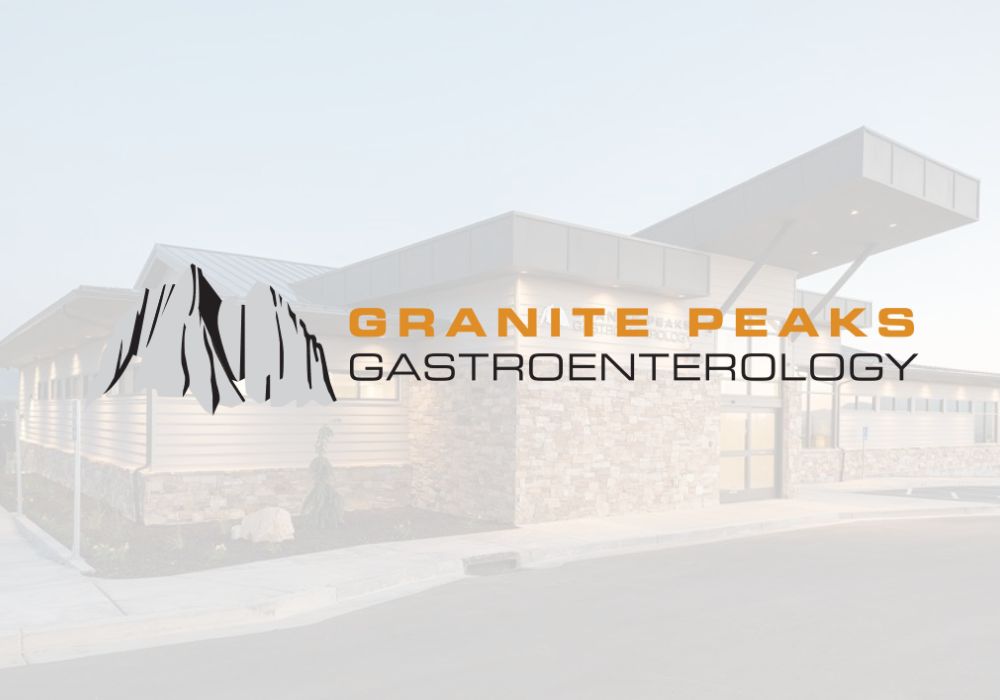Edited by May Marschner, PA-C
Osteoporosis is a common disease in which bones become thin and weak, leading to an increased risk of fractures. In fact, people with osteoporosis can break a bone simply by falling at home. More than 1.3 million osteoporosis-related fractures occur every year in the United States. A common misconception is this is a disease that only affects women, but 20 percent of hip fractures in the elderly occur in men.
There are many GI conditions and therapies that may increase your risk of developing osteoporosis. If you have any of these risk factors, your gastroenterologist may recommend screening for osteoporosis. The goal of screening is to identify people who are at increased risk of sustaining a low-trauma fracture who would benefit from intervention to minimize that risk.
Who Should be Screened for Osteoporosis
-all women aged 65 and older and all men aged 70 and older
-post-menopausal women younger than 65 who have certain risk factors for fractures (previous fracture, family history of hip fracture, low body weight, smoking, excess alcohol use, rheumatoid arthritis)
-people taking chronic steroids, such as prednisone at a dose of more than 5 mg daily for more than 3 months
-people with malabsorption and maldigestion conditions such as celiac disease, chronic pancreatitis and short gut syndrome—these conditions may lead to decreased vitamin D and calcium absorption
-people with inflammatory bowel disease such as ulcerative colitis and Crohn’s disease
-people with chronic liver disease such as primary biliary cirrhosis
-people who have undergone certain weight loss procedures such as gastric bypass
Screening for Osteoporosis
The best tool to diagnose osteoporosis and to monitor changes in bone mass over time is a simple XRay called a DEXA scan. If you have any of the above-mentioned gastrointestinal conditions, or if you take steroids regularly (or have in the past), your gastroenterologist may recommend a DEXA scan.
The results of a DEXA scan are quantified with a T-score.
-a T-score from +1 to -1 signifies normal bone density
-a T-score between -1 and -2.5 signifies osteopenia (pre-osteoporosis)
-a T-score of -2.5 or less signifies osteoporosis
Prevention and Treatment for Osteoporosis
-stop smoking and excess alcohol consumption
-participate in regular weight-bearing and muscle-strengthening exercises
-get enough calcium—the recommended daily allowance of calcium is 1000 mg per day for men and pre-menopausal women, and 1000-1500 mg per day for post-menopausal women; the average dietary intake of calcium in this country is only 500 mg daily, meaning that most people need to take 500-1000 mg of a calcium supplement daily; foods and drinks high in calcium include milk, cheese, yogurt, leafy green vegetables, and foods fortified with calcium such as cereals and juices
-get enough vitamin D—you should get at least 600-1000 units daily; your body naturally makes vitamin D through sunlight exposure—foods and drinks high in vitamin D include salmon and tuna and foods fortified with vitamin D like milk and cereals
-medications may be prescribed by your doctor to help reduce bone loss—the most common medications are biphosphonates and include Actonel, Fosamax, Boniva and Reclast
-treat the underlying disease appropriately and/or reduce use of medications that increase your risk for osteoporosis
How Proton Pump Inhibitors (PPIs) Might Affect Your Bones
Proton pump inhibitors (Prilosec, Prevacid, Nexium) block the production of acid in your stomach. Studies are controversial, but PPIs may decrease the absorption of calcium and increase the risk of fractures in people over the age of 50. The risk may increase with increasing dose and duration of PPI therapy. Short term PPI use has not been associated with bone density changes. Discuss with your doctor the benefits of taking a proton pump inhibitor if you have an increased risk of bone fractures. If a PPI is necessary long-term, the doctor will likely recommend a calcium supplement that doesn’t need stomach acid for absorption, such as calcium citrate (Cal-Citrate).
In summary, if you have a condition such as celiac disease, chronic liver disease, ulcerative colitis or Crohn’s disease; if you take chronic prednisone; or if you have undergone a prior gastric bypass procedure, you should talk to your Granite Peaks gastroenterologist about osteoporosis screening, prevention and treatment.


